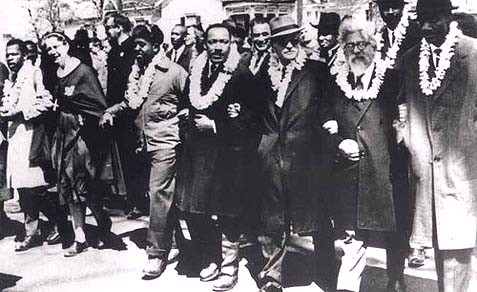Rachal Avraham
The Jewish Press
July 22, 2013
There is a long history of Jewish support for the civil liberties of African Americans which is reflected in members of the African American community supporting Jewish causes. For example in 2006, Cornetta Lane an African American at Wayne State University, even went as far as expressing this support by singing Hatikvah in front of an anti-Israel protester who claimed that Israel was a racist state. When Jewish students asked at the time why she sang Hatikvah, Cornetta replied that her pastor, Glen Plummer, explained that Jews significantly helped out African Americans during the Civil Rights Movement, and that Jews contributed significantly to both the NAACP and the Urban League, and were advisers to Dr. Martin Luther King Jr. Thus, when she saw that there was going to be an anti-Israel rally, Cornetta decided to take this step.
Cornetta Lane is not the only African American to feel this way, for Chloe Valdary, a young African American student who started the Allies for Israel organization on her campus, declared that one of her reasons for supporting Israel is because Jews assisted African Americans in their struggle for freedom. She furthermore asserted, “The parallels’ between the black struggle during the civil rights movement and the Jewish people today insofar as the legitimacy of Zionism is concerned is staggering. Martin Luther King Jr. is a Zionist but more importantly he realized that we must advance our duty when advancing the cause of human rights today. If he were alive today, he would surely be pro-Israel. This is one of the reasons why I am such a staunch Zionist.” Like Cornetta Lane, Chloe very much sought to demonstrate that she appreciated Jewish support for the African American struggle, and she herself also waved a picture of an Israeli flag in front of pro-Palestine demonstrators. Indeed, Jews in America had a long history of supporting the African American cause for Jews remembered their enslavement in Egypt and felt that helping out another oppressed people seemed only natural.
Jewish sympathy for the African American struggle dates back to the abolitionist movement. In 1861, Rabbi David Einhorn of Baltimore claimed that the Ten Commandments, of which the first proclaimed “I am the Lord, thy G-d, who brought thee out of the land of Egypt, out of the house of bondage,” cannot be interpreted to “place the slavery of any human being under divine sanction.” He furthermore declared, “What all our prophets have proclaimed and around which Israel’s fondest hopes center,” is “that all human beings on the wide globe are entitled to admittance to the service of G-d.” He asserted that neither cotton nor public opinion should be viewed as the king. Indeed, such Jewish sentiments against slavery were reinforced by the fact that legends claim that Jewish places of worship such as the Touro Synagogue in Rhode Island and the Bialystroker Synagogue in New York were stops along the Underground Railroad, hiding African American slaves as they attempted to escape to freedom.

